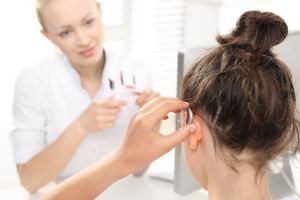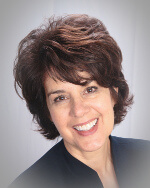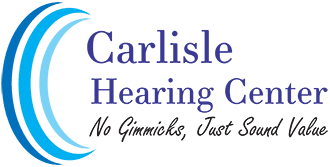Top myths about hearing loss
Sep 28, 2018 | Main Blog

Contributed by Debbie Clason, staff writer, Healthy Hearing
May 29, 2018
Hearing health has come a long way in the last 10 years, yet there are still a lot of misconceptions about hearing loss. Do you think hearing loss only affects the elderly? Or do you believe your doctor can tell you if you have a problem with your hearing during a routine physical. If you answered “yes” to either of these questions, it’s time to change your perspective.

Read on to learn more about these and other common hearing loss myths that can stand in the way of hearing your best.
Hearing loss is for the elderly
Approximately 20 percent of Americans — around 48 million Americans of all ages — have some degree of hearing loss, according to the Centers for Disease Control and Prevention (CDC). Additionally, hearing loss occurs in five out of every 1,000 newborns each year in the United States. Hearing loss can be caused by any number of factors: ototoxic medication, noisy work or hobbies, disease or genetics. In some cases, the cause of hearing loss is simply unknown.
Teens and young adults are at risk of developing a very preventable type of hearing loss. Noise-induced hearing loss (NIHL) is one of the most common causes of hearing loss, affecting approximately 26 million Americans between the ages of 20 and 69. According to the Centers for Disease Control and Prevention (CDC), as many as 16 percent of teens age 12 to 19 have reported some hearing loss which may be caused by loud noise.
My doctor will tell me if my hearing is failing
The last time you went for a physical, did your doctor perform a hearing test on you? Chances are he or she didn’t, because very few doctors do. Your doctor relies on you to bring any health concerns to light so they can investigate and treat them. You wouldn’t expect your physician to detect cavities in your teeth at a routine physical, so it’s just as unlikely they can detect changes in your hearing unless they are sudden and very obvious.
Hearing health professionals are specifically educated and trained to administer hearing tests, evaluate hearing loss and recommend treatment. If you notice your hearing has diminished, find a hearing healthcare professional in your area and make an appointment. At the very least, you will have established a relationship with someone who now has a baseline of how well you hear. If you visit them annually, just like you do your primary care physician, they’ll be able to detect any hearing loss as it occurs.
I’m ok, my hearing is only bad in one ear
Your brain is a thing of wonder. It relies on input from both of your ears to interpret the sounds you hear.
Hearing loss in one ear can affect your ability to determine where sounds are coming from (sound localization) and make it harder to understand speech in noise. It can even make it harder to do other things while you are listening to someone because unilateral hearing loss or single-sided deafness increases your overall cognitive load.
Single-sided deafness can be treated, but first, you’ll need to seek the advice of a hearing care professional.
Hearing aids will restore my hearing to normal
Today’s hearing aids are technological marvels. Their sensitive microphones can focus on speech while tuning out background noise, they can be programmed with the touch of a smartphone and they work in tandem with many other personal electronic devices in our lives. The one thing hearing aids CAN’T do is restore your hearing to perfectly “normal.” As much as we’ve learned about how our sense of hearing works, there is no man-made device that can completely replicate human hearing.
The good news? Hearing aids can significantly improve your ability to hear well, which leads to enhanced communication with family, friends, and co-workers. The key is to work closely with your hearing healthcare professional to make sure your hearing aids help you hear your best in each of your personal listening environments.
My hearing loss cannot be helped
Have you asked a hearing health provider about your hearing loss? Many forms of hearing loss can indeed be improved, whether it be by hearing aids, surgery, medication or a simple earwax removal procedure. You’ll never know if you never ask. And, if it’s been a few years since you’ve seen a hearing healthcare professional, consider making another appointment. The field of hearing health is rapidly changing. Hearing loss that was difficult to address even a few years ago may be treatable now.
My hearing loss is only my problem
Many people believe they can endure the hardships that go along with untreated hearing loss, and they choose to believe it affects only themselves. But, have you considered how difficult and frustrating it is to not be heard by someone you love? Your spouse, family members, devoted friends and even co-workers need to communicate and connect with you. Your hearing loss can put a strain on those valuable relationships in ways you might not know. If you don’t want to seek help for yourself, do it for those you love.
A better quality of life awaits once you overcome the myths surrounding hearing loss and its treatment. If you suspect you have hearing loss or you know someone who does, find a hearing clinic near you and schedule an appointment today!
Debbie Clason, staff writer, Healthy Hearing
 Debbie Clason holds a master’s degree from Indiana University. Her impressive client list includes financial institutions, real estate developers, physicians, pharmacists and nonprofit organizations. Read more about Debbie.
Debbie Clason holds a master’s degree from Indiana University. Her impressive client list includes financial institutions, real estate developers, physicians, pharmacists and nonprofit organizations. Read more about Debbie.

0 Comments